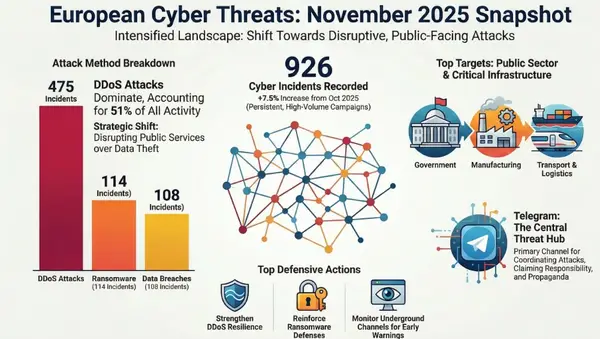NSW Flood Victims Data Breach Exposes Critical Vulnerabilities in Digital ID Plans

3,000 Australians' Personal Information Leaked to ChatGPT Raises Alarm Over Government Data Security
A major data breach affecting up to 3,000 flood victims in New South Wales has reignited fierce debate over the Albanese government's Digital ID system, with critics warning that similar incidents could become commonplace as more sensitive personal information is centralized digitally.
The Breach: What Happened
Between March 12 and 15, 2025, a former contractor working for the NSW Reconstruction Authority uploaded an Excel spreadsheet containing over 12,000 rows of sensitive information to ChatGPT, an unauthorized AI platform. The breach affected people who had applied for assistance through the Northern Rivers Resilient Homes Program following the devastating 2022 floods.
The exposed data included names and addresses, email addresses, phone numbers, and personal health information—precisely the type of sensitive details that would be stored in any comprehensive digital identification system.
Perhaps most concerning: the breach occurred over six months ago but was only disclosed on a NSW public holiday Monday, with some victims still not contacted despite the passage of time. While the NSW Reconstruction Authority claims there is "no evidence that any of the uploaded data has been accessed by a third party," they acknowledge it "cannot be ruled out" until Cyber Security NSW completes its investigation.
A Pattern of Government Data Failures
This incident is far from isolated. The Albanese government itself has acknowledged that millions of Australians were affected by major data breaches in the last 12 months, including the Optus, Medibank, and Latitude hacks. These breaches have exposed fundamental vulnerabilities in how both government and private organizations handle sensitive personal information.
In response to this latest breach, the NSW government has "reviewed and strengthened internal systems and processes and issued clear guidance to staff on the use of unauthorised AI platforms, like ChatGPT," with safeguards now in place to prevent similar incidents. Yet critics argue that reactive measures after breaches occur demonstrate the inherent risks of centralizing personal data.
The Digital ID Expansion
Against this backdrop of security failures, the Albanese government is pushing ahead with an ambitious expansion of Australia's Digital ID system. More than 10.5 million Australians have already created accounts with the Federal Government's Digital ID system, myGovID, to access more than 130 government services.
The Digital ID Bill 2023, which passed the Senate, puts in place the legislative framework for phased expansion of the Australian Government's Digital ID system to include state and territory government services and the private sector. From November 30, 2024, state and territory government services have been able to apply to join the system, with private sector entities able to apply by December 2026.
The government promotes Digital ID as a way to reduce the unnecessary collection of identity information and minimize the risk of data breaches, arguing that it allows users to verify their existing ID documents online without repeatedly providing physical copies of sensitive documents like passports and birth certificates.
Critical Security Concerns
Privacy advocates and cybersecurity experts warn that centralizing identification data creates what they call a "honeypot" for hackers and criminals. Each time a digital ID is used, it leaves behind a digital trail, with metadata about time, location, and device logged and stored, building detailed profiles of movements and activities over time.
Data breaches have shown how vulnerable large data stores can be. If a centralized digital ID system were compromised, it wouldn't just expose phone numbers or emails—it could expose entire identities, including passports, driver's licenses, and medical records, leading to identity theft, fraud, and long-term damage to victims' financial and personal lives.
Inadequate security measures can lead to data breaches or misuse of data by private actors and governments. Without due process to remedy these issues, individuals may face compromised identities, theft, extortion, fraud, and harassment.
Even Estonia, often cited as a successful example of digital ID implementation, experienced an encryption incident in 2017 that put 760,000 people at risk of identity theft. And India's Aadhaar system, despite serving over a billion people, suffered a breach in October 2023 when uniquely identifiable information including Aadhaar and passport numbers of approximately 850 million Indians was leaked onto the dark web.
The Human Factor
The NSW flood victims breach highlights another critical vulnerability: human error and misconduct. The data was uploaded to an unauthorized AI tool by a contractor, demonstrating that even with security systems in place, individuals with access to sensitive data can compromise entire databases.
This raises questions about how a vastly expanded Digital ID system will manage contractor access, employee training, and enforcement of security protocols across multiple government agencies and eventually private sector organizations. As the system grows to encompass more data about more Australians, the attack surface and potential for human error expand exponentially.
Surveillance and Tracking Concerns
Beyond security breaches, civil liberties groups warn about the surveillance implications of digital ID systems. Over 80 organizations and prominent experts have opposed a surveillance feature in digital identity systems known as "Phone Home," which allows governments to track individuals through their digital driver's licenses or other identity documents every time they're used.
While presenting a plastic driver's license involves only two parties with no government notification, digital driver licenses are being built so that the system notifies the government every time an identity card is used, giving authorities a bird's-eye view of where, when, and to whom people are showing their identity. This functionality becomes especially intrusive as digital IDs are increasingly required for online activities, potentially giving governments the ability to track browsing history.
The Government's Position
The Albanese government maintains that Digital ID is a critical capability for keeping Australians safe online, with the system designed to be secure, convenient, voluntary, and inclusive. Officials emphasize that Digital ID is not a card or unique number, but simply a way to verify identity online without repeatedly sharing sensitive documents.
Finance Minister Katy Gallagher argues that Digital ID makes it safer and easier for Australians to prove who they are online, with people sharing less personal information held by fewer organizations subject to stronger regulation, thereby reducing the chance of identity theft.
The government has invested $145.5 million over four years from 2023-24 to support the Digital ID system and implement independent regulation and oversight, including funding for the ACCC to perform regulatory functions and the Attorney-General's Department to operate Identity Matching Services.
What the Breach Reveals
The NSW flood victims incident exposes several troubling realities:
Delayed Disclosure: The six-month delay between the breach and public notification, with the announcement made on a public holiday, has raised questions about transparency and whether authorities attempted to minimize media attention.
Uncertainty About Scope: Despite months of forensic analysis, authorities still cannot definitively state whether the uploaded data was accessed by third parties, highlighting the challenges of tracking data once it leaves secure systems.
Vulnerable Populations at Risk: The breach specifically targeted people already in crisis—flood victims seeking government assistance—demonstrating how those most in need of support can become the most vulnerable to data exploitation.
Contractor Oversight Gaps: The incident reveals weaknesses in how government agencies monitor and control contractor access to sensitive databases, a problem that will only magnify as Digital ID expands.
The Broader Implications
This breach provides a sobering preview of what could occur on a much larger scale if Australia's Digital ID system experiences similar security failures. While the government emphasizes that Digital ID is voluntary, critics warn that as more services require digital verification, the system may become effectively mandatory, with those who refuse potentially excluded from essential services.
Privacy experts recommend conducting robust human rights and privacy impact assessments before implementing digital ID frameworks, refraining from collecting biometric data until governments can guarantee secure collection and storage, and implementing digital ID as a truly voluntary service.
Moving Forward
The NSW Reconstruction Authority has promised compensation for reasonable out-of-pocket expenses if compromised identity documents need replacement, and has directed affected individuals to ID Support NSW for assistance. But the psychological toll and long-term vulnerability created by such breaches cannot be easily remedied.
As Australia moves toward an economy-wide Digital ID system connecting government services, state agencies, and private sector organizations, the flood victims breach serves as a stark warning. Without ironclad security measures, genuine transparency, and accountability mechanisms that go beyond post-breach apologies, critics argue that expanding digital identification systems will create unprecedented opportunities for data theft, identity fraud, and government surveillance.
The question facing Australians is whether the convenience of digital ID justifies the concentration of personal information that, once breached, cannot be unbreached—and once stolen, cannot be replaced.
For affected individuals: The NSW Reconstruction Authority's Resilient Homes Program call center can be reached at 1800 844 085, Monday to Friday, 9am-5pm. ID Support NSW is available at www.nsw.gov.au/id-support-nsw or 1800 001 040.





